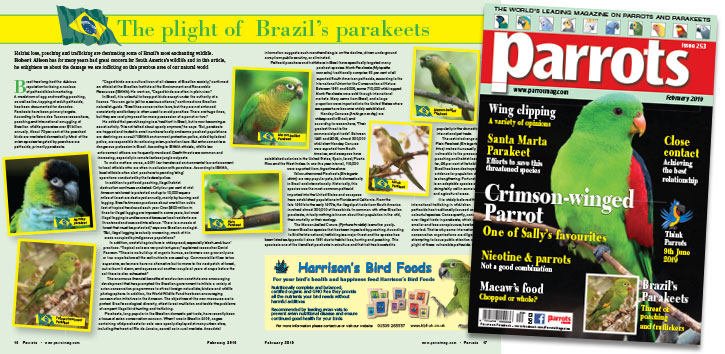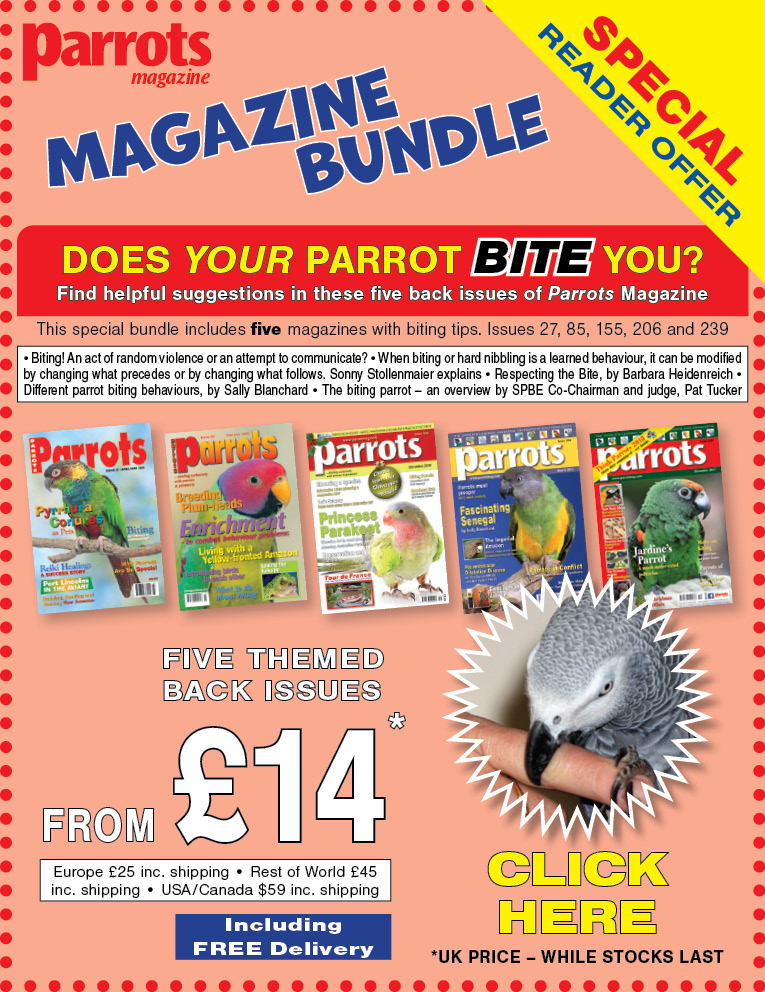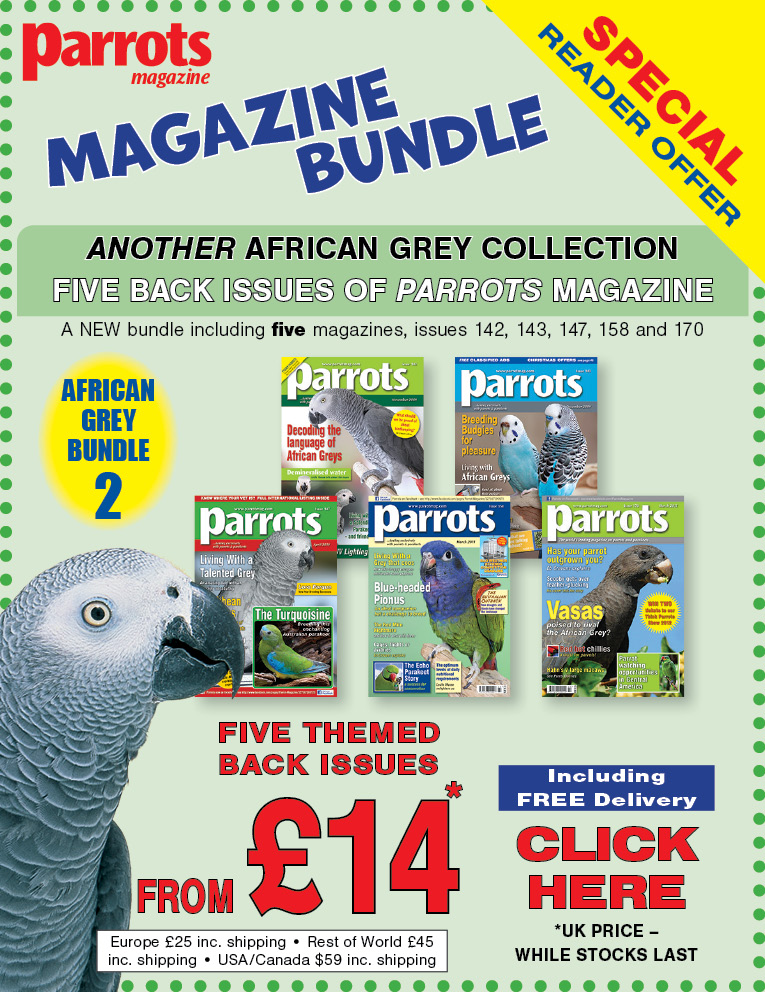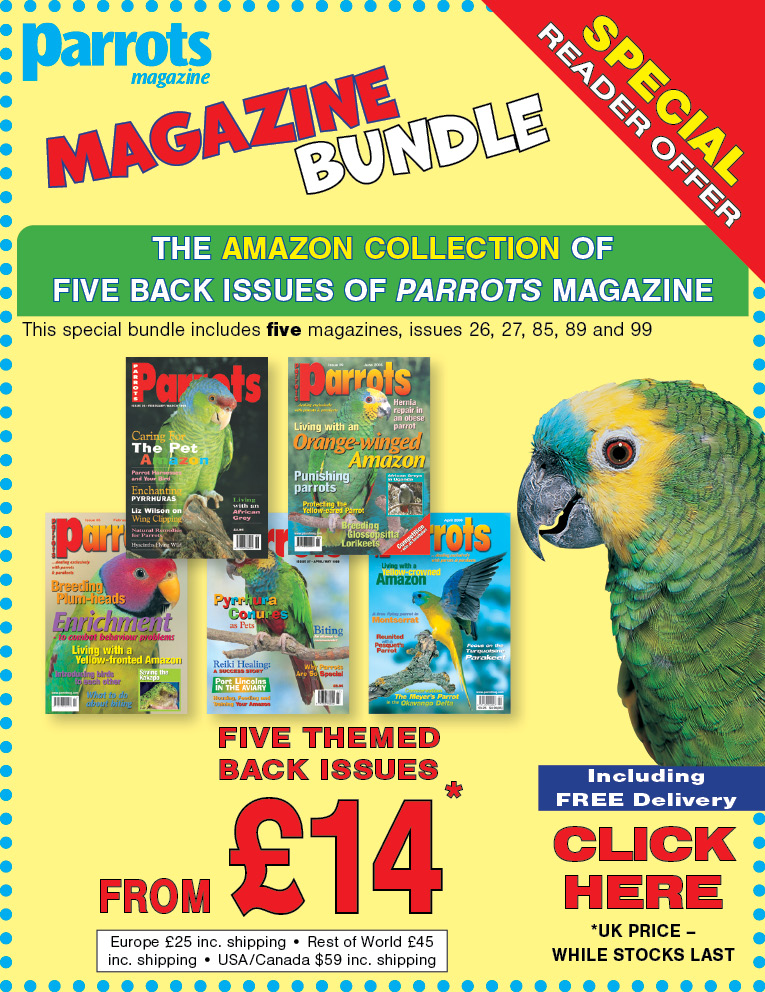
Habitat loss, poaching and trafficking are decimating some of Brazil’s most enchanting wildlife. Robert Alison has for many years had great concern for South America’s wildlife and in this article, he enlightens us about the damage we are inflicting on this precious area of our natural world.
Brazil has long had the dubious reputation for being a nucleus of psittacid black marketing. A maelstrom of egg and nestling poaching, as well as live-trapping of adult psittacids, has been documented for decades. Parakeets have been primary targets. According to Serra dos Tucanos researchers, poaching and international smuggling of Brazilian wildlife generates over $1 billion annually. About 70 per cent of the poached birds are marketed domestically. Most of the avian species targeted by poachers are psittacids, primarily parakeets.
"Caged birds are a cultural icon of all classes of Brazilian society," confirmed an official at the Brazilian Institute of the Environment and Renewable Resources (IBAMA). He went on, "Caged birds are often in plain view."
In Brazil, it is unlawful to keep pet birds except under the authority of a licence. "You can go to jail for a serious offence," confirmed one Brazilian naturalist-guide. "Brazil has conservation laws, but they are not enforced consistently and bribery is often used to avoid penalties. There are huge fines, but they are rarely imposed for mere possession of a parrot or two."
He added that parrot-keeping is a ‘tradition’ in Brazil, but is now becoming a secret activity. "It is not talked about openly anymore," he says. "But, parakeets are trapped and traded in small numbers locally and some parakeet populations are declining as a result." IBAMA environment protection police, aided by federal police, are responsible for enforcing avian-protection laws. But enforcement is a dangerous profession in Brazil. According to IBAMA officials, wildlife law enforcement officers are frequently murdered. Death threats are common and increasing, especially in remote lawless jungle outposts.
Buy Now!








Parrot Chat
Buyers Guides
Breeding articles